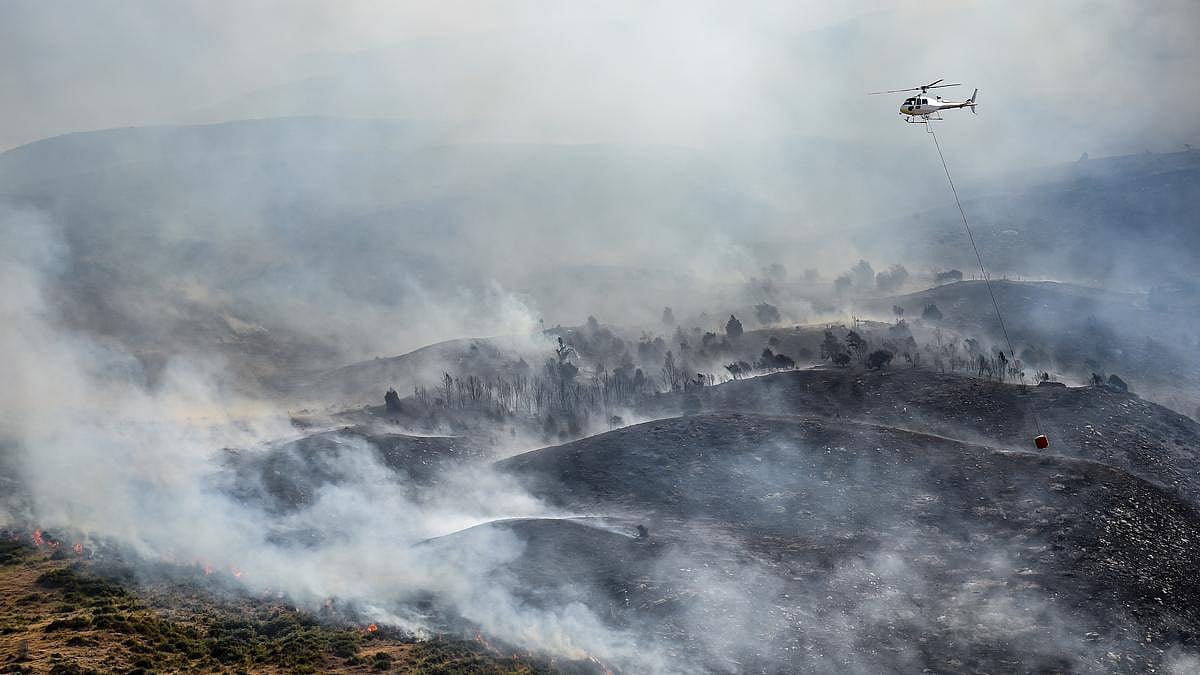Get Healthy!

- Ernie Mundell
- Posted November 25, 2024
Wildfire Smoke Exposure Linked to Dementia Risk
People in Southern California with relatively high exposures to wildfire smoke over a decade also had significantly higher risks for dementia, a new study warns.
In fact, the fine-particle pollution created by these fires seems more closely tied to brain trouble than similar pollutants from factories and car exhaust, the researchers noted.
Over the long-term, every one-microgram-per-square-meter increase of wildfire-generated air pollution "was associated with an 18% increase in the odds of dementia diagnosis," concluded a team led by Joan Casey. She's an associate professor of environmental and occupational health sciences at the University of Washington in Seattle.
The new study looked at health data on more than 1.2 million members of the Kaiser Permanente Southern California health system. Participants were tracked for the years 2008 through 2019.
Casey's team correlated changes in each member's neurological health against exposures to local wildfires. These blazes have been on the rise in southern California in recent years due to climate change.
Investigators looked specifically at an airborne pollutant called PM 2.5. It's a product of combustion that's so tiny it can permeate deep into the lungs, and is even thought able to cross the protective brain-blood barrier.
Studies on PM 2.5 generated by industry or motor vehicles have long shown it to be "associated with incident dementia," the researchers noted.
Would PM 2.5 generated by wildfires be any different?
According to the study results, it could be much more harmful to the brain than other forms of PM 2.5.
While long-term high exposure to wildfire particulate matter upped the odds of dementia by 18%, similar exposures to PM 2.5 generated by other source upped people's risk by just 1%, the researchers calculated.
Of the more than 1.2 million Californians covered by the study, certain groups seemed to be at particular risk.
People who were younger than 75 when they entered the study appeared more prone to smoke-linked brain harm compared to older people, and folks living in poorer areas also faced higher risk for dementia linked to wildfire smoke.
Why would poverty make a difference?
As the researchers explained, people are advised to stay indoors whenever wildfire smoke clouds the air, but poorer families may have "lower-quality housing [that] may increase smoke infiltration." They may also be unable to afford pricey air-filtering devices, Casey's team said.
Poverty and race are often interconnected, so the finding that the link between wildfire smoke and dementia was stronger among Black and Hispanic participants, compared to whites, was not surprising, the study authors added.
Because of hotter, drier conditions brought on by climate change, "wildfires, once rare and geographicaly confined, now regularly impact populations across the US," Casey's team noted.
Helping to prevent these fires and beter shield residents from smoke when they do occur, "may reduce dementia diagnoses" in years to come, they believe.
The study was published Nov. 25 in the journal JAMA Neurology.
More information
Find out more about air pollution's effect on the brain at Harvard University.
SOURCE: JAMA Neurology, Nov. 25, 2024

